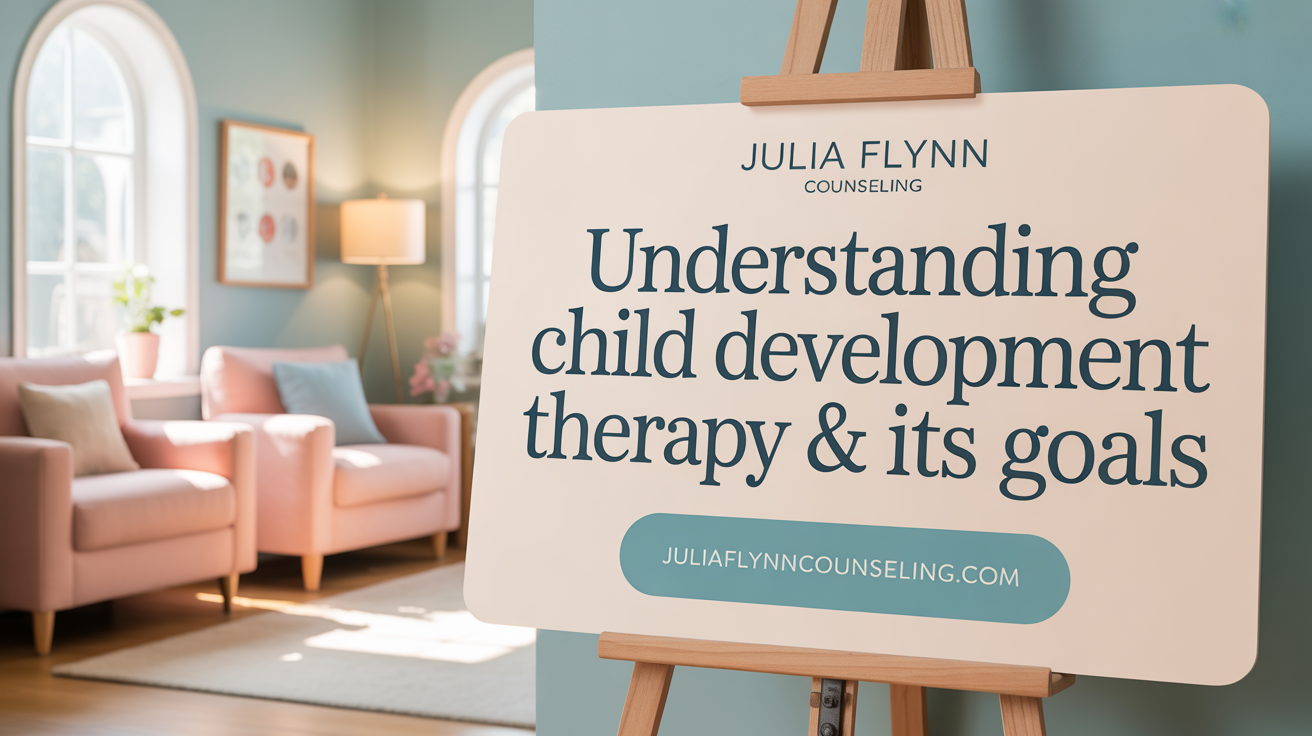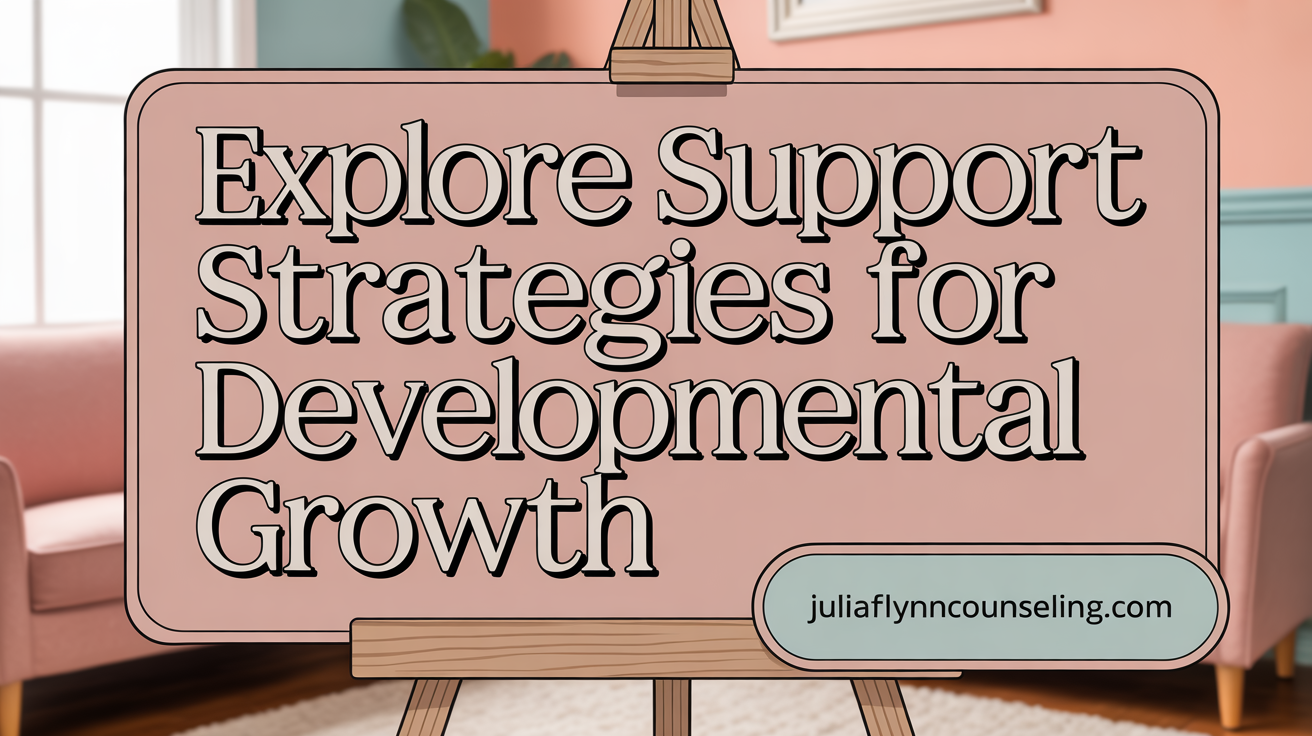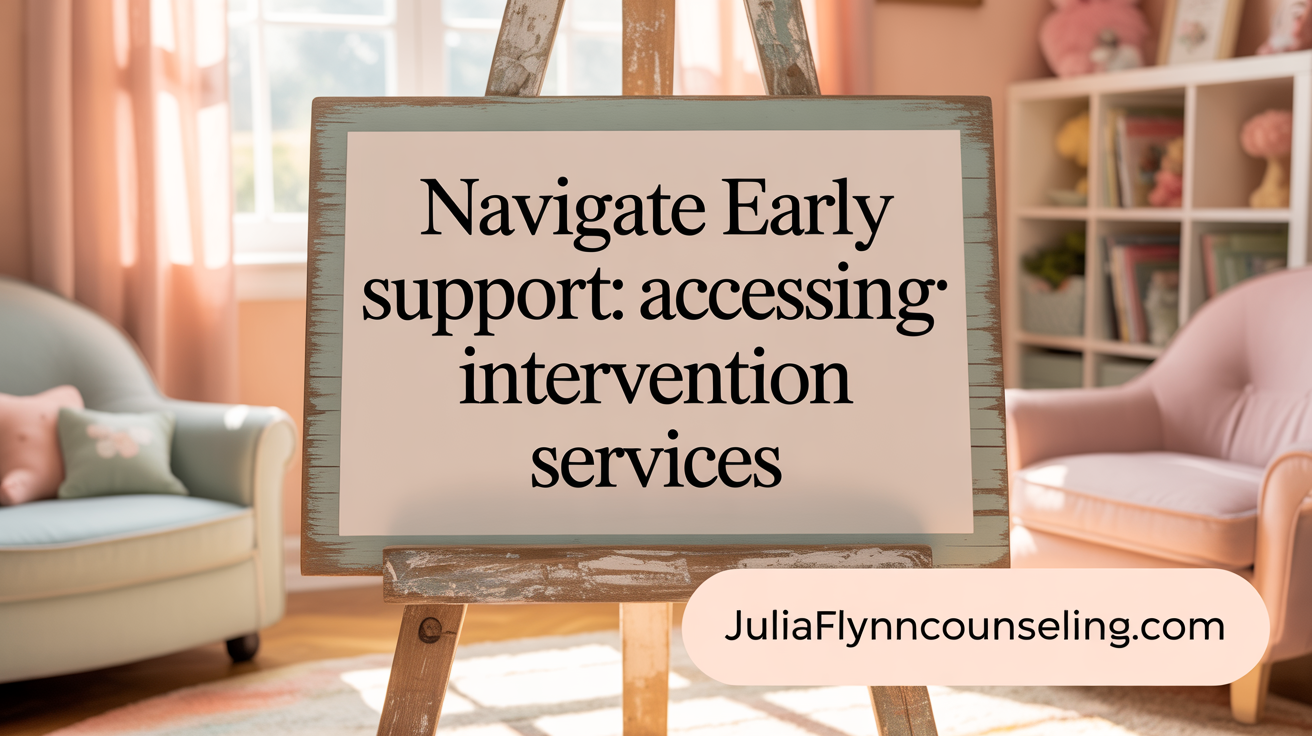Understanding Therapies for Developmental Progress in Children
Supporting a child's developmental progress is a multifaceted journey that often includes various therapeutic approaches designed to address delays or disabilities across cognitive, physical, social, and emotional domains. This article offers a detailed overview of therapies that aid developmental growth in children, emphasizing the importance of early detection, intervention, and the collaborative roles of therapists, families, and educational systems in fostering optimal outcomes.
What Is Child Development Therapy and Its Core Goals?

What is child development therapy?
Child development therapy, also known as developmental therapy, is a specialized approach designed to support children who face delays or disabilities in their growth. It aims at helping children reach their full potential by addressing various areas such as cognitive skills, social interaction, emotional regulation, and physical abilities. Therapists use tailored strategies and techniques to promote motor skills, sensory processing, language development, and overall functioning. Professionals involved in this therapy include pediatric specialists, neurodevelopmental therapists, and programs like those at the Yale Child Study Center. They perform evaluations and provide a range of treatments, which may include therapy sessions, family guidance, and medication when needed. The central goal of developmental therapy is to enhance the child's quality of life by fostering growth across multiple developmental domains.
Areas of child development addressed
Developmental therapies cover diverse areas to ensure holistic growth:
- Cognitive skills: problem-solving and reasoning
- Communication: speaking, understanding, and social cues
- Motor skills: both fine motor (hand movements) and gross motor (walking, sitting)
- Emotional and social skills: interaction and emotional regulation
- Self-help skills: independence in daily activities
Goals of developmental therapies
The main objectives are to help children reach key milestones like walking, talking, and social interaction, and to improve their daily functioning. These therapies focus on personalized interventions that support each child's unique needs and pace of development. Increasing independence, improving communication, and fostering emotional resilience are central aims.
Benefits for children and families
Children benefit by gaining improved skills in communication, motor abilities, social inclusion, and self-care, leading to greater confidence and participation in activities. For families, early intervention provides essential support and education, empowering them to advocate effectively for their child's needs. Access to these therapies can lead to better academic success, emotional well-being, and improved long-term outcomes. Overall, child development therapy aims to help children flourish and reach their potential within a nurturing, supportive environment.
Recognizing Signs and Importance of Early Detection and Intervention

What are the signs that indicate a child may benefit from developmental therapies?
Children who are lagging in typical developmental milestones might need additional support through therapies such as speech, occupational, or physical therapy. Signs include a lack of communication attempts, such as not babbling or saying words by age one or two. Difficulties with motor skills, like sitting, crawling, or walking later than peers, are also red flags. Children might show limited eye contact, poor social interaction, or resistance to routine activities. Behavioral issues such as frequent tantrums or difficulty managing emotions can suggest the need for social or behavioral therapies. If a child shows persistent delays across multiple areas—cognitive, motor, speech, or social—evaluation by a developmental specialist is recommended.
Early screening helps identify these signs promptly, enabling interventions that support skill development and help children catch up with their peers.
Why is early detection and intervention important for developmental issues in children?
Identifying developmental delays early is crucial because it opens the door to timely support, which can drastically improve a child's future abilities. Early intervention services like speech, occupational, and physical therapies are designed to be most effective when started during the brain's highest plasticity window, mainly in the first three years of life.
Early diagnosis allows children to develop essential skills in communication, motor coordination, and social interaction, paving the way for better school readiness and independence. It can also prevent or reduce the severity of long-term challenges, such as learning disabilities or behavioral problems.
Moreover, early interventions help families understand how to support their child's growth and create routines that foster development. By promoting early growth and learning, these services contribute significantly to children’s overall well-being and future success.
Therapeutic Modalities for Developmental Delays: Types and Techniques

What therapy types are used for children with developmental disorders?
Children with developmental delays or disabilities benefit from a variety of therapeutic approaches tailored to their specific needs. Common therapy types include physical therapy, occupational therapy, speech and language therapy, and behavioral therapies like social skills training and cognitive-behavioral therapy.
Physical therapy primarily focuses on improving gross motor skills such as crawling, walking, and jumping. It enhances muscle strength, coordination, and balance, which are essential for overall mobility and independence. Occupational therapy helps children develop fine motor skills—like grasping objects, writing, and self-care activities—and supports sensory processing and emotional regulation.
Speech and language therapy address communication challenges, including speech articulation, language comprehension, and social interaction. Speech therapists work to improve vocabulary, sentence structure, and often assist with feeding and swallowing issues.
Behavioral therapies, such as social skills training, teach children appropriate social behaviors and interaction techniques. Cognitive-behavioral therapy (CBT) helps manage worries, fears, and behavioral issues, especially in children with social or emotional delays. These approaches use structured activities, positive reinforcement, and sensory integration to promote healthier development.
Early diagnosis through developmental screening accelerates intervention efforts. Thorough evaluation helps pinpoint specific delays, enabling a multidisciplinary team of healthcare providers, therapists, and families to craft effective, individualized treatment plans.
The goal of combining these therapies is to improve mobility, communication, social skills, and behavior, thus supporting children to reach their full potential. Providing continuous, tailored interventions significantly boosts developmental outcomes, especially when started early in life.
Play-Based and Family-Centered Approaches: Fostering Development Through Engagement

What are play-based and family-centered therapeutic approaches?
Play-based therapeutic approaches use play as a central method to help children express feelings, develop social skills, and manage emotional or behavioral issues. Therapists often incorporate structured or unstructured play activities, understanding that play is a natural language for children. This technique allows children to communicate difficult thoughts and feelings, especially when verbal expression is limited. Family-centered therapy emphasizes active involvement from family members in the child's progress. It aims to strengthen family bonds, improve communication, and address emotional or trauma-related issues within the family context. When combined, these approaches create a supportive environment where both the child's natural expressions and family dynamics are focused on fostering holistic development and resilience.
What is an example of a developmental therapy technique?
One prominent example of a developmental therapy is Floortime, also known as DIR Floortime. This play-based method encourages building social, emotional, and communication skills through relationship-centered interactions. Caregivers or therapists join the child at their developmental level, following their interests and lead to promote engagement and learning. The approach emphasizes understanding the child’s signals and fostering emotional connections rather than focusing solely on specific behaviors. By playing together at the child's pace and interest, Floortime supports overall growth, emotional regulation, and social integration, making it a versatile technique used across different developmental challenges.
How can parents and caregivers be educated about developmental therapies?
Educating parents and caregivers is a crucial step in supporting a child's developmental journey. Programs like WHO’s Caregivers Skills Training are designed to provide comprehensive guidance on developmental milestones and therapeutic strategies that can be implemented at home. These training programs are adaptable, often delivered by nurses or community workers, and may include group sessions and home visits to maximize participation. An accessible online version is available through the WHO Academy, broadening reach to caregivers worldwide. These programs empower families with the knowledge and practical skills needed to support their children’s development through everyday activities, routines, and play, ensuring that therapy is integrated into daily life and promotes sustained growth.
Accessing Early Intervention Services: Processes, Criteria, and Support

What are the processes and criteria for accessing early intervention services?
Getting support through early intervention starts with a referral, which can be made by parents, healthcare providers, or educators when developmental concerns arise. After a referral, the child undergoes thorough evaluations to determine if they meet eligibility criteria. These assessments look at various areas—such as speech, motor skills, cognition, and social-emotional development—and identify delays or risks.
If the child qualifies for services based on these assessments, an Individualized Family Support Plan (IFSP) is created. This plan combines input from the family and a team of professionals like speech-language pathologists, occupational therapists, and developmental psychologists. The IFSP sets clear goals and details the specific services tailored to support the child's growth.
Once the plan is set, the child receives services in natural environments like home or community settings, emphasizing family involvement. The IFSP is reviewed and updated every six months to reflect progress and changing needs. Support services are typically free or low-cost, and participation is voluntary.
Before turning three, plans are made to smoothly transition the child to preschool or other community programs, ensuring continuity in development support. Overall, early intervention aims to catch delays early, providing children with the best chance to reach their developmental milestones.
Additional Resources
For more detailed guidance on accessing services, search for "Early intervention services for developmental delays" to find tailored resources and support networks.
The Role of Therapists and Therapeutic Procedures in Child Development
Therapists, as trained professionals in child development, play an essential role in supporting children with developmental delays. They hold qualifications such as bachelor’s degrees or higher in fields like early childhood education, developmental psychology, or related areas, and often obtain credentials or licenses that require ongoing training. These professionals work within a multidisciplinary team that may include speech-language pathologists, occupational therapists, physical therapists, and behavioral specialists, ensuring comprehensive care tailored to each child's unique needs.
Assessment, individualized treatment planning, and goal setting form the foundation of effective therapy. Therapists evaluate children’s developmental progress through screenings and assessments to identify strengths and challenges across cognitive, motor, communication, social, and emotional domains. Based on these findings, they develop personalized intervention plans aimed at helping children reach developmental milestones. Regular reviews and updates to the plan ensure that therapy remains aligned with the child’s evolving needs.
Therapeutic techniques often involve play-based interventions, social skills training, behavioral strategies, and cognitive behavioral methods. Building a trusting relationship is central to therapy, as it encourages children to participate actively, express emotions safely, and develop social and emotional skills. Therapists use age-appropriate activities—such as puzzles, role-playing, and sensory play—to engage children and promote growth.
Parental involvement is a crucial aspect of therapy. Therapists coach parents on strategies to support their child's development at home and in everyday routines. This collaboration helps in reinforcing learned skills, maintaining consistency, and fostering a supportive environment that promotes resilience and self-confidence.
Overall, therapy procedures and the relationships built through them work hand-in-hand to enhance a child’s development. They aim to improve communication, motor abilities, social competence, and emotional regulation, empowering children to reach their full potential and adapt successfully to the world around them.
Empowering Development Through Targeted Therapies and Support
Developmental delays and disabilities in children require a comprehensive, individualized, and collaborative approach to therapy. By recognizing early signs and initiating timely interventions, children can achieve critical developmental milestones and improve their emotional, social, and functional abilities. The wide array of therapies—ranging from speech and physical therapy to behavioral and play-based interventions—are most effective when combined with family-centered care, education, and ongoing support. Therapists play an essential role in guiding children and families through this process, designing tailored interventions that foster growth and independence. Access to early intervention services, supported by structured plans and equitable funding, further ensures that children receive the necessary help to reach their full potential. Ultimately, these therapies not only aid in developmental progress but also empower children and families toward healthier, more fulfilling futures.
References
- Therapy for Older Children with Developmental Delays
- Developmental Delay in Children: Symptoms, Causes & Outlook
- Developmental Therapy
- These 4 Therapies will Benefit your Child with Developmental Delays
- Developmental Therapy | Washington DC, Maryland
- Why Act Early if You're Concerned about Development? - CDC
- 7 Early Intervention Physical Therapy Goals - Care Options for Kids
- Key Approaches to Developmental Delay Treatment - Kutest Kids
- How Pediatric Therapy Can Improve A Child's Development
- Therapy for Infants & Toddlers with Developmental Delays
